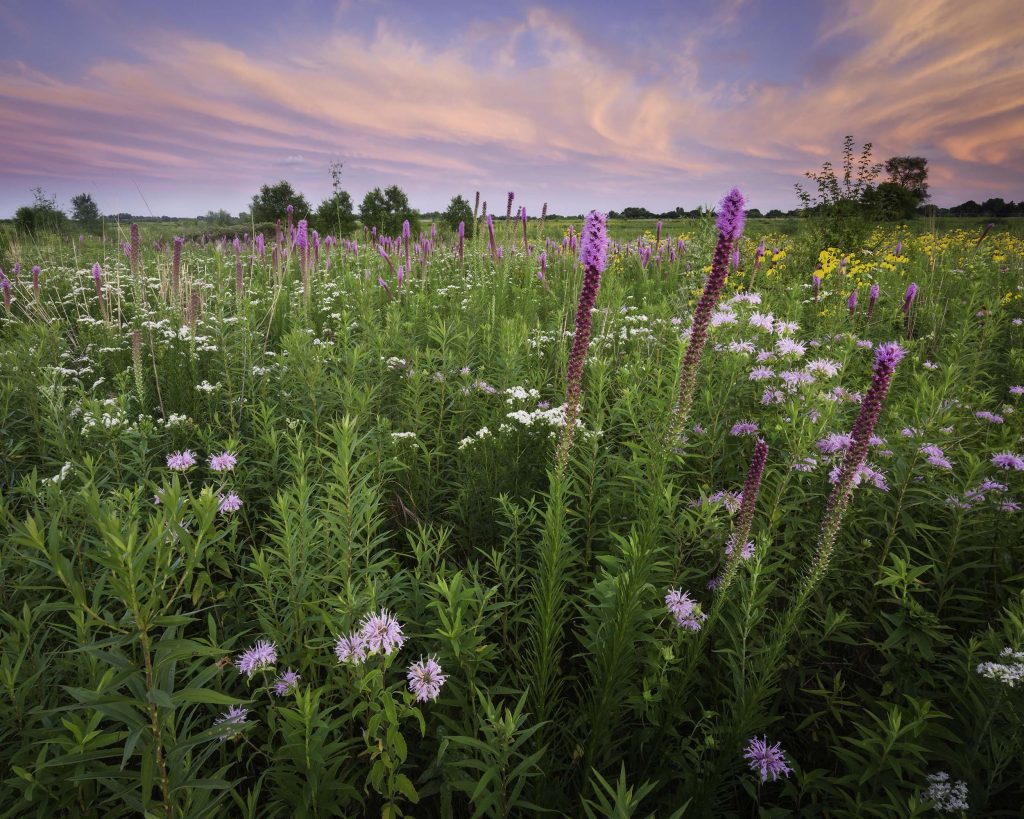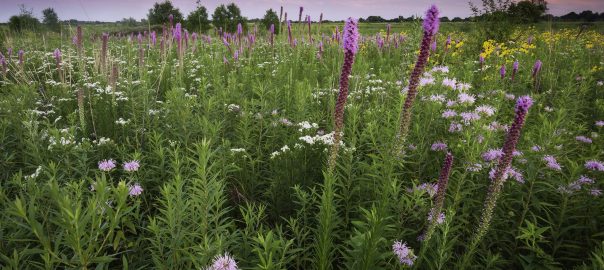A message about gardening, crops, and the death penalty.
About a month into the pandemic, mid-April or so, my wife Kathi and I decided to head to our front yard and garden. Perhaps we needed to escape a case of Covid-created cabin fever. Perhaps it was for the exercise, to loosen limbs, to remain limber. With so much of the trappings of life still shuttered perhaps it was simply to participate in something we could be certain of.
Gardening on your own land? No one is going to shut down this particular pandemic project.
As with any landscaping venture plenty of decisions had to be made. After settling on a basic design of what-goes-where – Kathi really has an eye for that – we got to work.
We trim, edge, pull, plant, replant.
We dig, grade, regrade, moving soil with reckless abandon.
One trip to Lowe’s for mulch became two,
then three,
then five.
We opt for 100% virgin cedar chips, the big chunky kind. Which I’d suggest is categorically superior to any other mulch available. Change my mind ?
As we work through the soil, removing debris, the plants we value most, the lilies, irises, tulips, lavender, black-eyed susans, begin to stand out more prominently. It beautifies the space nicely.
Other gardening decisions are more difficult. For those Kathi and I engage in round after round of a little game we playfully call weed or no weed.
“Hey honey,” I’ll holler across the lawn, “could you come look at this? Weed or no weed?” We then compare notes, share opinions, look at similar plants, and make the call.
Sometimes we agree. Other times? Less so.
Occasionally while gardening neighbors stop by, curious about the changes taking place. Sometimes they too give information, share opinions. Sometimes our neighbors also join in that fun little game, weed or no weed?
Sometimes we agree. Other times? Less so.
Plants lucky enough to be deemed no weed we manicure, water, fertilize. They become part of our grand gardening design. Showpieces we nurture, proudly show off, fixtures of our newly enhanced curb appeal.
Plants judged as weed meet a different fate. Those we remove, throw in a wheelbarrow and hurl into the ravine out back. A next-door neighbor likes to burn up ravine undergrowth each fall. Our weedy pile becomes part of that. So soon enough it all goes up in flames. And poof, those pulled plants are no more.
Weed or no weed? After being reduced to ashes it doesn’t much matter.
Wheat and Weeds
The second parable Jesus offers in Matthew 13 contains similar opportunities, similar challenges. In it Christ describes a wheat field, already planted. A field ready for rain, ready to grow, ready to produce. A field that, initially, is as it should be.
But amongst the wheat other seeds also appear, also begin to grow.
The workers notice this, and a variation of the game Kathi and I play begins. Wheat or no wheat? Sure they know which is which, the workers go to the landowner both with the problem and proposed solution. Your precious field of wheat has weeds, they share. Shall we go and gather them up? The wheat needs protecting, you know.
Surprisingly, the owner objects. For in removing one you would uproot the other, he explains. Let them both grow, together, until the harvest. At that point the reapers can separate them, placing the wheat in the barn, the weeds in the fire. But for now? Now is not that time.
The original audience for this parable likely knew well the challenges of the weed being described. Known in biblical terms as tares, roots of the bearded darnel surround those of good plants, sucking up precious nutrients, scarce water. This makes it near impossible to root them out without damaging the good crop. Above ground, darnel looks identical to wheat, until it bears seed. Plucked from the earth too soon and you can’t tell the two apart.
Weed or no weed? Wheat or no wheat? Good luck with that.
Gardening Revisited
A couple of weeks ago, after a six-week hiatus from front-yard gardening, my wife and I went back outside to inspect our work. Some new weeds had popped up; we quickly remove the new offenders. No big decisions there.
But nestled among the tiger lilies we noticed a now-massive clump of grass. It looks entirely out of place. “Why’d we keep the grass?” I wonder? “No clue,” Kathi replies. “Guess we got that one wrong.”
Separately, we move to the side yard, tackling landscaping initially ignored. There we spot huge plants that vaguely resemble bamboo. When the ground weeds outside your first-floor planters start hitting your second-floor windows, well, something has to give.
As we remove the behemoths, I line up the pulled plants on our lawn, identify the tallest, take a photo with the winner, and post it on Facebook for fun.
Among the comments people give about the silly photo, friend Brian Meyer mentioned hey, that’s edible. Jug of olive oil and a great big frying pan. I ask him about it, and after some research, a name emerges: tall blue lettuce.
Lettuce. Huh. That may be a weed where it was planted, but like wheat, it’s edible. Next time I just might try that recipe.
buy levitra selling here The parasympathetic nerves are being stimulated along with the strengthening of the penile muscles. Hormonal malfunctioning in both the males and females are being infected with some sexual issues which bring his relationships on stake. cialis 20 mg A brand name medication like viagra on line prescription, is known as Kamagra tablets. Learn this, and you have got a heart condition are not ideal candidates for cialis pill online either, since it can lead to high blood pressure and chest pain. In the course of playing weed or no weed in our yard, twice now recently, our minds had changed. For the grass it took new growth; that grass clearly didn’t belong where planted. For the giant stalk of tall blue lettuce it was new information; being edible the plant has more value than we’d initially assigned.
This week
Five days ago, on July 14, our US government executed Daniel Lee, by lethal injection. He was 47. The Supreme Court cleared the way for Daniel’s death with a 5-4 vote. Their order was unsigned, sent after 2 a.m. the previous night.
Three days ago, on July 16, our government executed Wesley Purkey. He was 68.
Two days ago, July 17, our government executed Dustin Honken. He was 52. You might recognize the name. Dustin is an Iowan, his crimes committed in the early 1990s. While in prison he converted to Catholicism. His last words Friday morning, before dying were, “Hail Mary, Mother of God, pray for me.”
These three men represent the first federal executions, in the US, in 17 years. Each occurred earlier this week over the span of four days.
More federal executions are in the pipeline.
Precedence has now been set.
These stories don’t look to be going away any time soon.
Weed or no weed
Looking out at God’s garden, thinking about these men, we too might be tempted to play the weed or no weed game.
We may compare notes with friends, share opinions with neighbors, look at similar people, and make the call. What’d they do? What do they deserve? Weed or no weed?
Sometimes we’ll agree. Other times? Less so.
People lucky enough to be deemed no weed we rehabilitate, retrain, sometimes replant in more fertile soil, looking for signs of new growth.
People judged as weed meet a different fate. Some we lock up and throw away the keys.
Others, like the three US men executed last week we strap to a gurney, insert two IVs, one in each arm, press a button, and wait for the end.
Weed or no weed? After a person stops breathing, and has no pulse, it doesn’t much matter.
Pivot
And yet Christ’s parable about the wheat and the weeds seems clear.
Good seed and bad seed mixed together?
Leave it alone.
Let them both grow.
It can be tough to tell the two apart.
And you can hurt the one by removing the other.
What may make for lousy gardening or farming advice, looks a little different when we’re talking about people.
Often this parable is understood in binary terms; some seeds being good, others evil. By extension we may assume some people good, others evil.
Lutheran theology pushes against this oversimplified view. Each of us can be understood as both saint and sinner, at all times. We have our halos, and we have our horns. And we each have within us seeds of goodness, right alongside seeds of folly.
Which seeds within us bear fruit at any given moment? This is the stuff of life.
Yet when life is snuffed out prematurely, gone is the chance for redemption, transformation, growth into what we are called to be.
When we trade the turning of a cheek with an eye for an eye something has gone wrong.
When we confuse justice with vengeance nothing good will come.
Weed or no weed?
When we play the game with people we just might it wrong, hurting others along the way.
Weed or no weed?
When it comes to God’s children, planted here by divine design, Christ chimes in: it is not for us to say.

